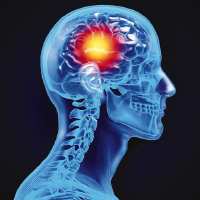By Rajesh C. Sachdeo, M.D.
According to the Epilepsy Foundation, more than three million Americans have been diagnosed with epilepsy and 150,000 cases occur each year.
Epilepsy is a chronic neurological condition that produces sudden disturbances in the normal electrical function of the brain and results in seizures that can affect an individual’s awareness, movement, sensations, or behavior.
The disorder can occur at any age, but it is especially common in children and older adults.
In many cases, epilepsy can be easily treated and managed with medication and lifestyle adjustments. Often, epilepsy in children will resolve as they grow older.
Penn Medicine Princeton Medical Center’s Epilepsy Program provides comprehensive diagnostic and treatment services for adults and children who have seizure disorders.
Understanding Epilepsy
When it comes to understanding epilepsy, it is helpful to think of a marching band.
In a marching band, if the drummer is off beat, the rest of the members may play louder so no one notices. But if the rest of the band doesn’t take over, the whole performance becomes disorganized and noticeably out of sync.
The same goes with your brain.
Typically, the different areas of your brain work in harmony together to stay balanced. If one area is misfiring, the other areas take over to keep it running smoothly.
However, if that balance becomes impaired, the brain can become disorganized and a seizure can occur. When a seizure occurs more than once for no obvious reason – such as a high fever – it is considered epilepsy.
Causes and Triggers
In six out of 10 cases, the cause of epilepsy is unknown, according the Epilepsy Foundation. In such cases, the cause may be genetic. In other cases, the cause varies by the age of the person.
In children, epilepsy is often caused by an infection, such as meningitis, the herpes virus or even the common flu, that leaves scarring on the brain. In older adults, epilepsy is typically associated with stroke, tumors, Alzheimer’s disease, or head trauma often resulting from falls.
It is important to note that seizures that are caused by fevers in children are not considered epilepsy.
In people with epilepsy, seizures can be triggered by a number of factors, which include:
• Sleep deprivation, poor quality sleep or changes in sleep patterns
• Certain medications
• Hormonal changes
• Excessive alcohol consumption
• Skipping meals
• Not taking seizure medications as prescribed
Diagnosis and Treatment
Diagnosis begins with a complete medical exam and thorough history, including time of onset and duration of the seizure, and any precipitating factors or events associated with the seizure.
In addition, electroencephalograph (EEG) testing is useful to record brain waves and identify specific patterns associated with seizures. Tests such as MRIs and CT scans can help determine if seizures are caused by any structural changes in the brain such as a tumor or scarring.
Treatment for epilepsy has come a long way since the 1970s when there were only a handful of seizure medications available for the condition. Today, there are 26 different drugs that have proven effective in treating epilepsy and preventing seizures.
However, not everyone responds to a medication the same way, and patients need to work closely with their neurologist to find the right medication and dosage for their condition.
For patients whose seizures are not controlled by medication, vagal nerve stimulation may be an option. Vagal nerve stimulation is designed to control seizures by sending small pulses of electrical energy to the brain through a small implant. This procedure is used in adults and children 12 years and older.
Living With Epilepsy
When a patient has a seizure, the event itself can be a scary experience for both the patient as well as for their loved ones. Not only can seizures lead to injury, but they can also cause sufferers to feel embarrassed and exhausted.
In addition to medical treatment, certain lifestyle adjustments can help reduce the risk for seizures.
• Getting adequate sleep. A well-rested brain is often able to suppress a good amount of seizure activity, like a good marching band can drown out the offbeat drummer.
• Exercising. Physical activity is good for your body and your brain. Moderate exercise has been shown to help prevent seizures in many patients.
• Limiting alcohol use. Alcohol can trigger seizures in some patients and can interact badly with epilepsy medication.
• Following a healthy diet and eating regularly. The brain needs proper nourishment to function well and becomes irritable and more susceptible to seizures with hunger.
For women of childbearing potential, before pregnancy is contemplated and during pregnancy, extra precautions are necessary in order to control seizures. Pregnancy can impair the absorption of many seizure drugs, thereby decreasing their effectiveness. It is critical for the pregnant patient to work with her doctor to adjust medications as needed during all stages of pregnancy to protect her and the baby.
Parents of children with epilepsy should make sure their child takes their medication as prescribed, has a healthy diet, and practices good sleep habits. As children grow older, particularly when they enter high school and college, seizure control may become more problematic because of noncompliance with prescribed medication or lifestyle changes with respect to sleep, diet and alcohol use.
Parents should encourage their children to lead a normal life, but also remind them to practice healthy habits so they can keep their epilepsy under control and prevent seizures.
For more information about the Epilepsy Program at Penn Medicine Princeton Medical Center or to find a physician with Penn Medicine Princeton Health call 888-742-7496 or visit www.princetonhcs.org.
Rajesh C. Sachdeo, M.D., is board certified in neurology and specializes in treating patients with epilepsy. He is a member of the medical staff at Penn Medicine Princeton Health.

